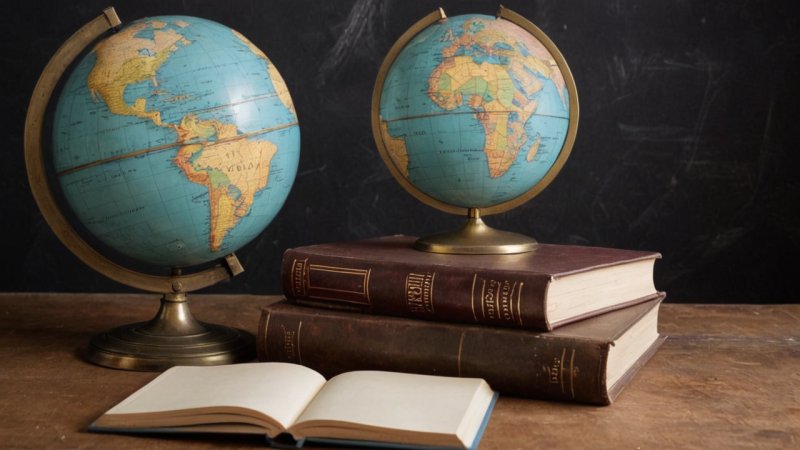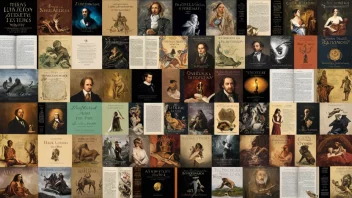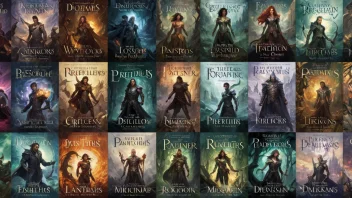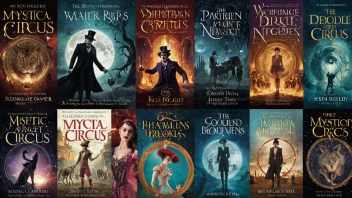Non-fiction literature serves as a vital tool for understanding historical events, societies, and the intricate tapestry of human experience. Unlike fiction, which can often bend the truth for narrative effect, non-fiction strives to present facts, analysis, and interpretations grounded in reality. In the realm of historical research, this genre is indispensable, providing scholars and enthusiasts alike with the resources needed to paint an accurate picture of the past. Here are five compelling reasons why non-fiction is essential for historical research.
1. Factual Accuracy
One of the primary benefits of non-fiction is its commitment to factual accuracy. Non-fiction books, articles, and essays are often backed by rigorous research, ensuring that the information presented is credible and reliable. This is especially important in historical research, where the accuracy of events, dates, and figures can significantly impact our understanding of history.
- Primary Sources: Non-fiction often includes primary sources such as letters, diaries, and official documents that provide firsthand accounts of historical events.
- Secondary Analysis: Many non-fiction authors analyze existing historical data, offering interpretations that help contextualize events within broader societal trends.
- Fact-Checking: Reputable non-fiction works usually undergo a thorough fact-checking process, enhancing their credibility.
2. Diverse Perspectives
Non-fiction literature is not monolithic; it encompasses a wide range of perspectives and interpretations. Different historians and writers may examine the same event but present it through various lenses, such as political, social, cultural, or economic viewpoints. This diversity enriches historical understanding and encourages readers to think critically about the past.
- Multi-Dimensional Analysis: Non-fiction allows for multi-faceted analysis, considering various factors that influence historical events.
- Voices from the Margins: Many non-fiction works focus on underrepresented voices, shedding light on the experiences of marginalized groups.
- Interdisciplinary Approaches: Non-fiction often draws on insights from disciplines such as sociology, anthropology, and psychology to provide a more comprehensive view of historical events.
3. Educational Value
Non-fiction books serve as valuable educational resources for students, educators, and lifelong learners. They help readers develop critical thinking skills and encourage a deeper understanding of complex historical issues. By engaging with non-fiction, readers are not just passive recipients of information but active participants in the learning process.
- Textbooks and Academic Works: Many non-fiction books are used in academic settings, providing foundational knowledge on various historical topics.
- Documentaries and Essays: Non-fiction essays and documentaries often accompany written works, offering visual and narrative context that enhances learning.
- Book Clubs and Discussions: Non-fiction provides ample material for discussions, allowing readers to share insights and challenge each other's viewpoints.
4. Contextual Understanding
To understand the present, one must often look to the past. Non-fiction literature provides the necessary context for current events by tracing their historical roots. This context is crucial for comprehending how historical events shape contemporary society, politics, and culture.
- Historical Narratives: Non-fiction often weaves historical narratives that connect past events to present-day issues.
- Cause and Effect: Understanding the causes and consequences of historical events helps readers grasp the complexities of current affairs.
- Lessons Learned: Non-fiction allows for reflection on past mistakes and successes, offering valuable lessons for future generations.
5. Inspiring Inquiry
Reading non-fiction can spark curiosity and inspire further inquiry into historical subjects. When readers encounter compelling narratives or eye-opening facts, they are often motivated to delve deeper, seek out additional resources, and explore related topics. This intrinsic motivation to learn is a hallmark of effective non-fiction writing.
- Encouragement to Research: Engaging non-fiction can prompt readers to conduct their own research, leading to a more informed public.
- Interconnected Stories: Non-fiction can highlight the interconnectedness of various historical events, encouraging readers to explore broader themes.
- Passion for History: Well-written non-fiction can ignite a passion for history, encouraging readers of all ages to appreciate the discipline.
In conclusion, non-fiction literature is an indispensable component of historical research. Its commitment to factual accuracy, diversity of perspectives, educational value, contextual understanding, and ability to inspire inquiry make it a powerful tool for anyone interested in exploring the complexities of the past. By engaging with non-fiction, readers not only enhance their understanding of history but also cultivate a lifelong love of learning.






